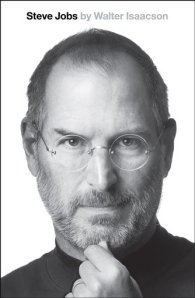On Tyrants – Recent Reads!
I’ve been on somewhat of a reading binge recently. I enjoy finding common themes and connections between books that I read, so I present to you some of those thoughts. I dislike trying to pin down an exact rating, so let’s go with deserves a read or missed the mark.
Nothing to Envy – Barbara Demick
The story of North Korea can be told through many lenses. It is satisfying and simple to portray North Korea through the lens of an outsider, because in this country’s case reality truly is stranger than fiction. In fact, it is so absurd that at times the narrative changes from describing a dark, totalitarian state to a farce. This has been done with great style by many, including the Vice Guide to North Korea and the graphic novel Pyongyang: A Journey in North Korea by Guy Delisle. I highly recommend them. A much more complicated story, both to obtain and to tell, is that of the people of North Korea. Nothing to Envy not only manages to tell that story, but does so with great empathy and clarity.
Told through the accounts of defectors during the great famine of the early 1990’s, Demick weaves multiple stories into an epic tale of love, family, and sacrifice that had me holding back some tears by the end of the book. It didn’t dawn until me until then, but I had been cheering for these people the entire way through. Although secondary to the stories themselves, as a Communist damnation this book is the best I’ve seen, particularly because Demick finds accounts of people from all across the power spectrum: from the highly favored caste, an eventual Workers’ Party member, to the lowest, the family members of a former POW from South Korea. It’s easy to spot the cracks even without direct pushes or narrative-making from the author, and makes for a compelling exploration of philosophy and systems of government. Through and through, this book deserves a read.
Steve Jobs – Walter Isaacson
Admit it, this dude is an icon. Steve Jobs was pivotal in putting the personal computer on our collective radar. As with any man as influential as this there is always a story to tell; indeed, Isaacson makes use of this to fill up 656 pages. Unfortunately, much of this bulk only serves to hammer home one point: Jobs is unlikable, petulant, emotionally unavailable, and mean. (And even so, occasionally brilliant.) Perhaps this isn’t the author’s fault, but it sure felt like it at times. Early in the book, I simply felt a distaste for the man; he is exactly the kind of manager that I would despise working under. I didn’t expect for him to do a 180 and reveal a warm fuzzy-bear side, but as the book went on I became more discontented.
Jobs never evolves as a person, and I grew to despise him for that. All of his infatuations (drugs, eastern religions, radical diets) do not seem to fundamentally improve him as a human in any way. Steve is static. His lack of personal growth paradoxically peaks with his battle with cancer. It is caught in an early and treatable stage, but Jobs remains recalcitrant to authority, refusing medical advice for a live-saving surgery, deciding instead to rely on extreme diets and alternative therapy. When he finally relents and has the surgery, he ends up aspirating his stomach contents into his lungs because he refuses to have his stomach pumped, against doctors’ advice. Afterwards he complains that he “almost died because the doctors messed up a routine operation.” Cue me throwing down the book in disgust.
I cannot relate to Jobs on any level; his humanity is like a mythical beast listed in some cryptozoological manual. I suppose in that lies the fundamental drama of his life’s story: Jobs was such a stiff arrow that it eventually killed him. Jobs is precisely what I guard myself against becoming, and maybe that scares me; maybe that’s why I hate him so. From a more technical standpoint, Isaacson could have easily pared the book down to a more manageable 500 pages, leaving out the multitudinous, distracting mentions of Jobs’ “reality distortion field” and its supporting evidence (seriously Walter, we get it) and some of the more nuts-and-bolts descriptions of business deals found in the latter half of the book. Even with the personal insight that this book enabled, I’m going to have to say it missed the mark for all but the most involved Apple aficionados.

